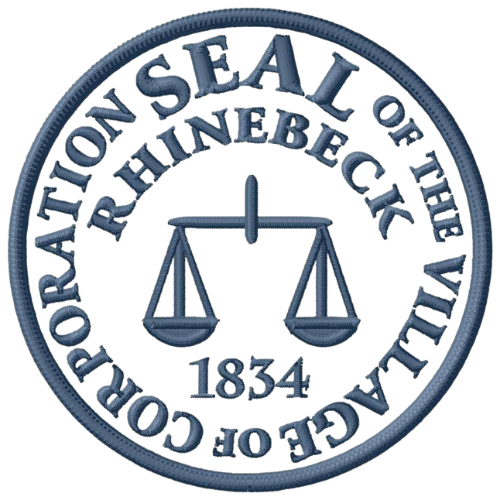Resiliency Workshops
Climate Smart Rhinebeck has pulled together community stakeholders and municipal leaders to gather knowledge and explore solutions.
Focus Group: Older Adults & Climate Vulnerability
in Rhinebeck Village & Town
Rhinebeck Village and Town collaborated to host a focus group on June 14, 2024 at Starr Library. The discussion centered on the experiences of old adults who are a particularly large portion of our population here and who have specific needs in the face of climate change. Impacts discussed were localized flooding, heat emergencies, drought, wild fire smoke, and sea level rise on the Hudson River.
Community Resilience Building Workshop
4 Municipalities Attend Community Resilience Building Workshop
On February 13, 2020, Town and Village of Rhinebeck as well as Town and Village of Red Hook gathered together to knowledge-share and prioritize needed adaptations to climate change threats.
Hudson River Watershed Alliance and the Nature Conservancy have partnered to develop and facilitate a one-day workshop for municipalities. We are thrilled we were offered this workshop free of charge. The workshop attendees were limited to about 10 government employees and civic leaders from each municipality.
The workshop focused on coastal flooding, drought, and inland flooding—which turned out to be the most pressing area for Rhinebeck Village. The workshop provided prioritization recommendations for projects for the Village Board and CSC Task Force as well as recommendations for funding sources.
Read the Report.
View the complete matrix.
More about the workshop can be found at www.communityresiliencebuilding.com
Public Community Adaptation Workshop
On January 9, 2020, at Starr Library, the CSC Task Force hosted a public workshop it had developed to educate the public about the concept and importance of adapting to climate change. We also wanted to collaboratively:
map our community stakeholders
get an idea of which climate change impacts are most relevant to our area
brainstorm adaptation techniques as a group
The CSC reached out to invite a variety of folks from across the community to participate from their different points of view. We had about 50 attendees.
You can view the workshop flow (and feel free to request a PDF if you’d like to run the workshop for another group).
The results were very interesting! We ended up with a list of about 25 stakeholder groupings and 25 climate change impacts. In the third exercise, we assigned each breakout group a random stakeholder paired with a random impact. We then instructed them to imagine how a scenario might play out because of particular vulnerabilities. They then had to describe how they would plan for such a scenario and brainstorm adaptation techniques that would minimize the damage of the negative scenario. We had a LOT of notecards and ideas, which we’ve transcribed here. Check it out!
Major take-aways:
Rhinebeck Village is very prone to flooding and we need to understand how to handle stormwater.
Participants voiced concern about our drinking water supply (the Hudson River) and water infrastructure.
Attendees raised the issue of trees dying because of the shifting climate and from severe storm damage.
The Village’s aging population faces challenges with extreme weather, power outages, and needs more robust communication and social networks.
At the same time, it was urgently voiced that our community’s young people (some of whom attended the workshop!) will be bearing the brunt of climate change, and so partnerships with the school district are vital.
Public Health: Lyme and other tick-borne illnesses were raised, as well as anxiety aggravated or brought on by climate change.
The community expressed concern for local agriculture—such a vivid and unique aspect of our area—and would like to see engagement with Drawdown science.
On a related note:
Prompted by cataclysmic COVID pandemic, in June 2020, CSC Task Force Coordinator, Vanessa Bertozzi, ran an online session with the volunteer-led group Rhinebeck Responds. In one segment, about 50 participants brainstormed their vision of Rhinebeck’s future. Three main themes emerged through our local lens: Diversity, Affordability, and Sustainability. CSC and local volunteers would like to continue to hold more public community visioning workshops, to explore these intertwining themes. View the recorded Zoom session.
Participants at the Starr Library workshop, January 2020
Elena Rose, owner of local small business, Land of Oz
Dan Shapley, member of the Joint Village/Town Environmental Committee, Riverkeeper Water Quality Program Director
Kellianne Ticcony, college student and prior Rhinebeck High School Environmental Club President, speaking with Anne Brueckner of Rhinebeck Aging at Home, and Andrew Hunter, a member of the Joint Village/Town Environmental Committee
Julia Farawell, Administrative & Communications Coordinator for Sustainable Hudson Valley
Michelle Traub, Town of Rhinebeck resident, and Vanessa Bertozzi, Rhinebeck Village’s Climate Smart Community Task Force Coordinator











